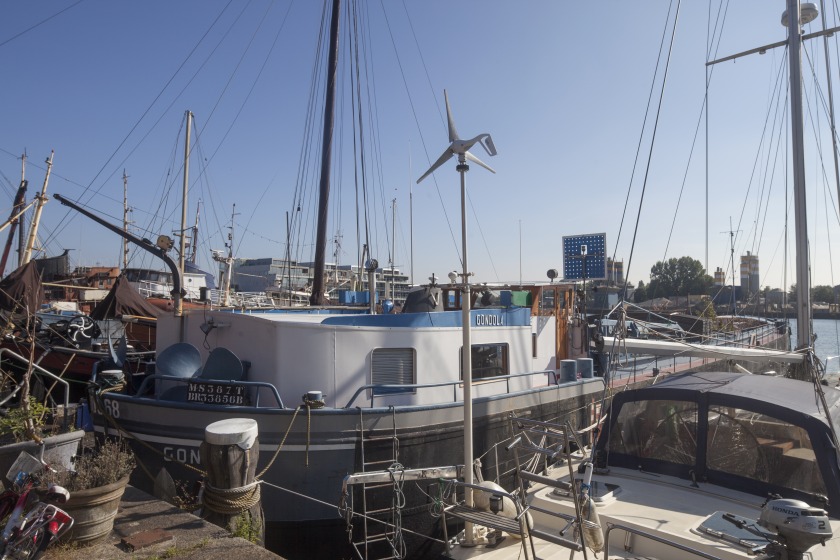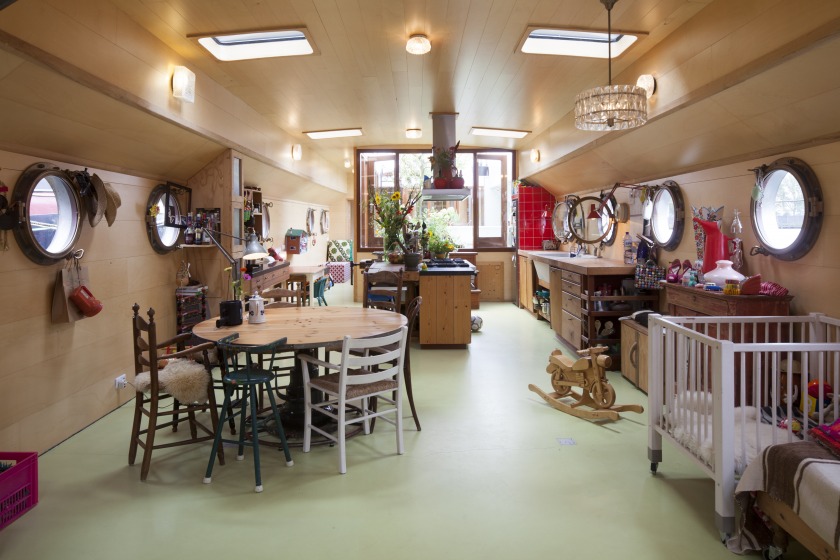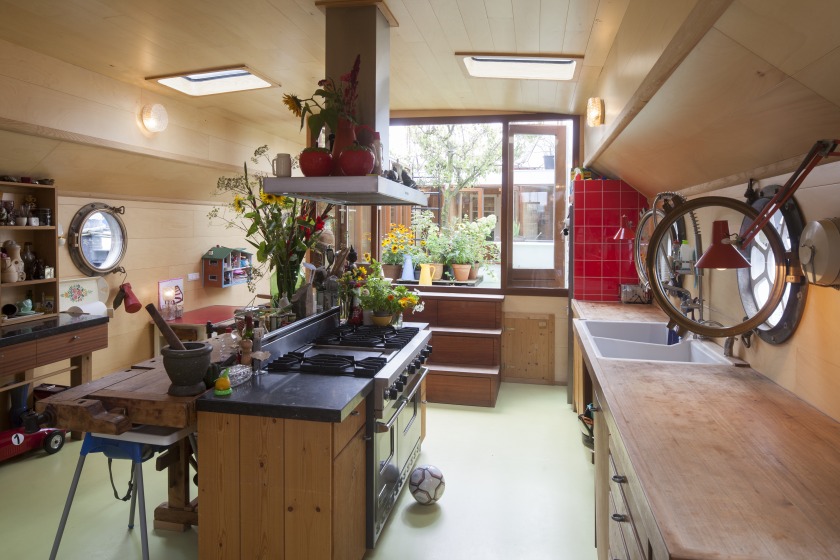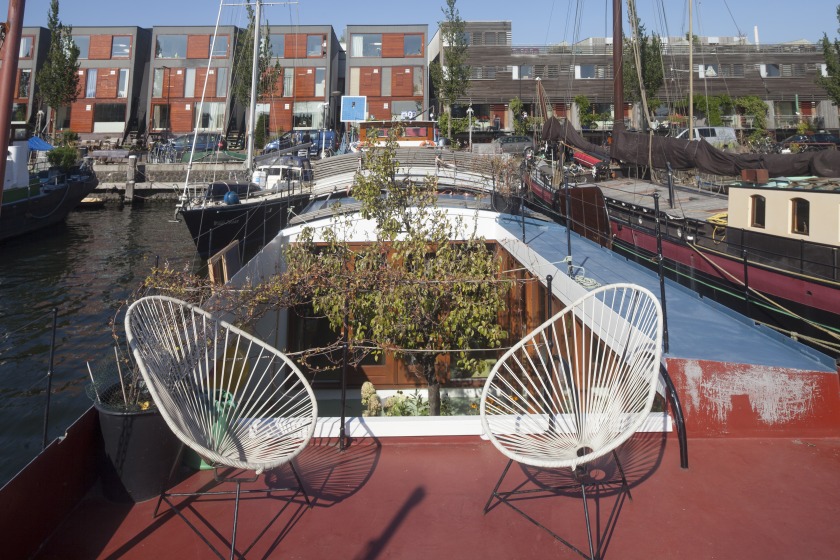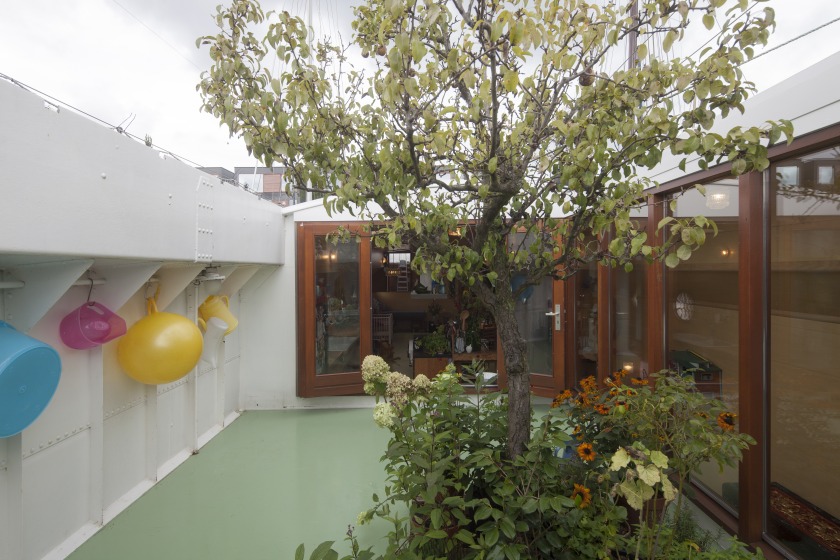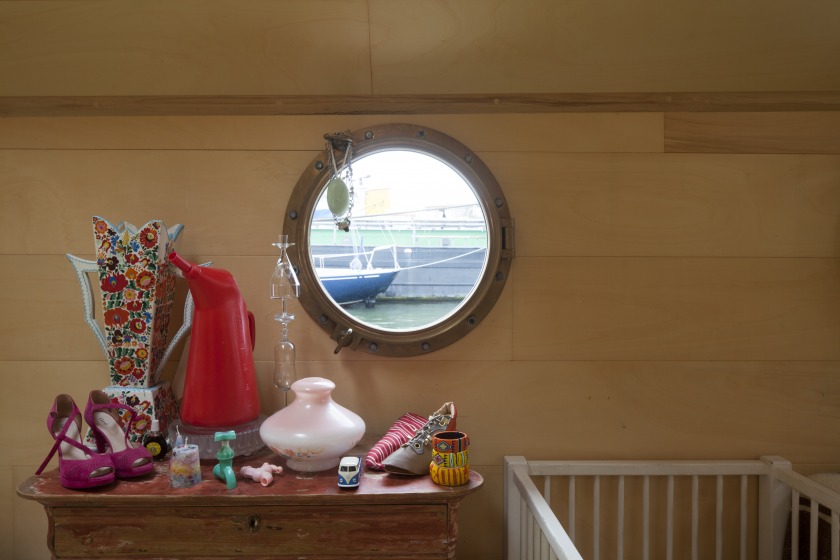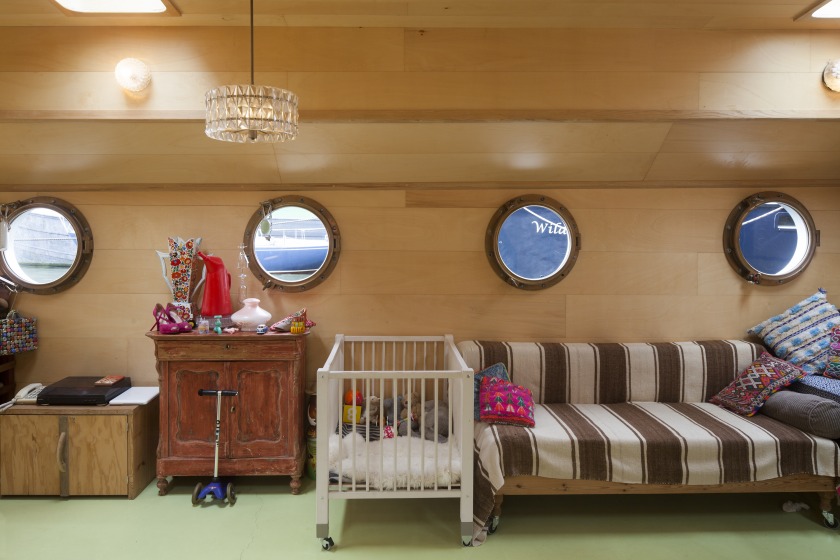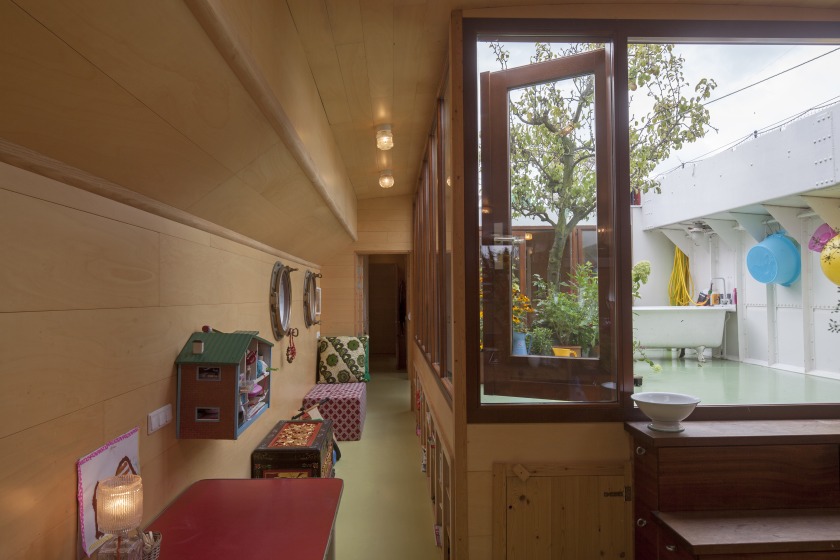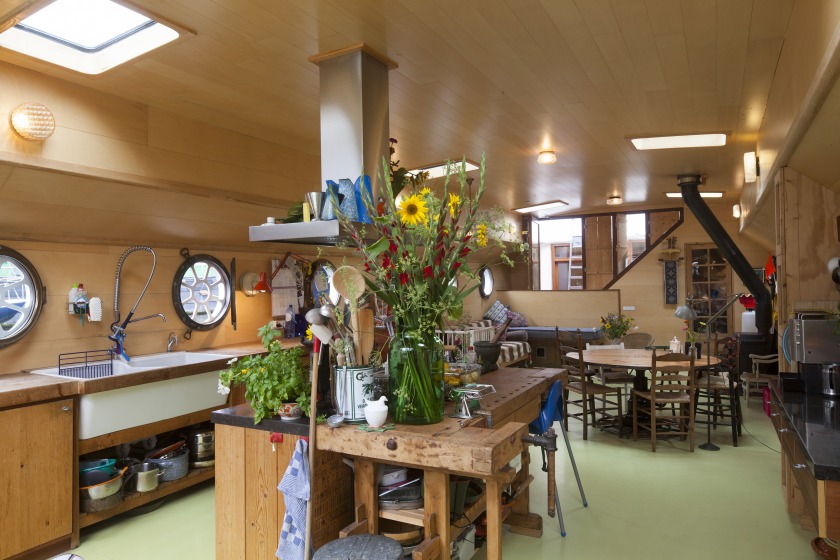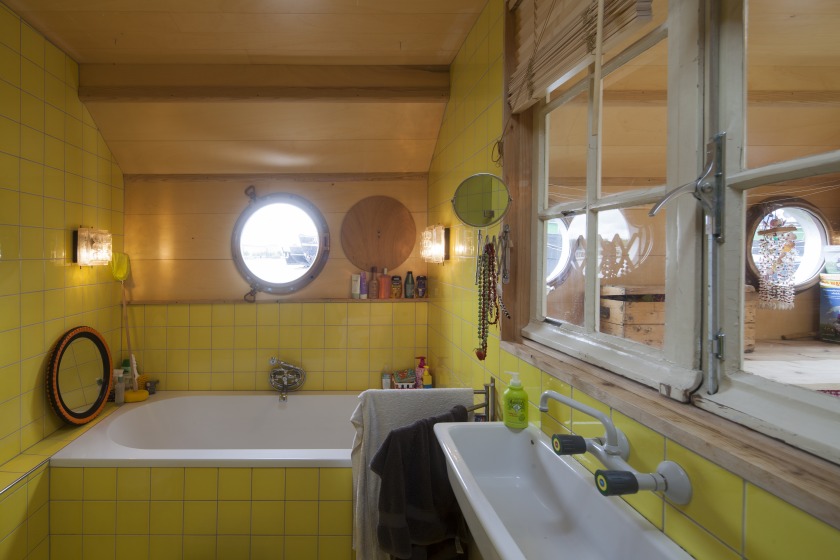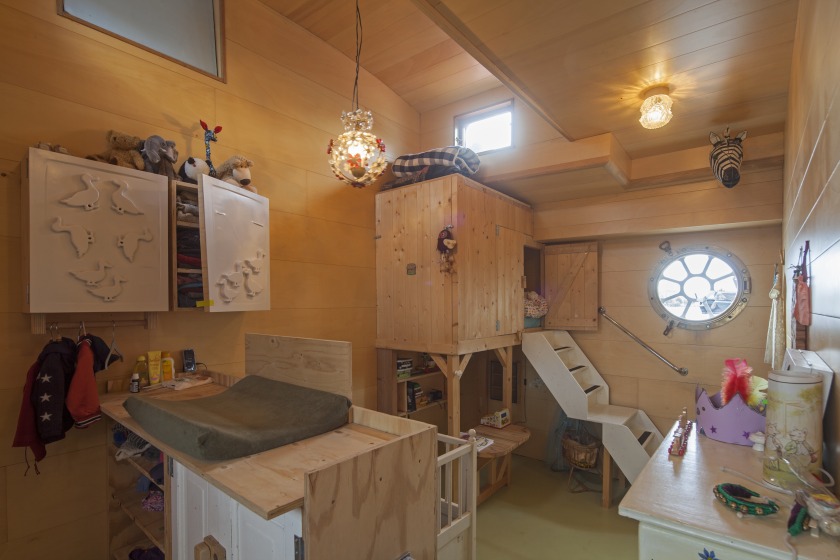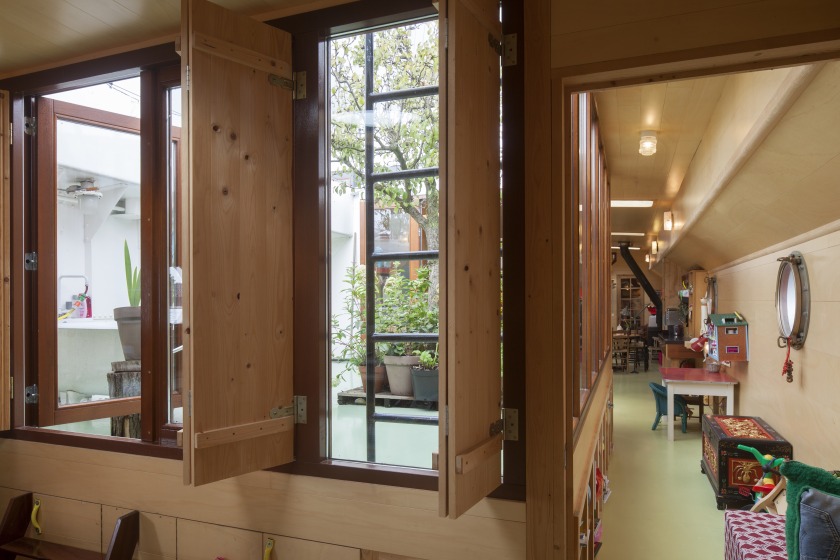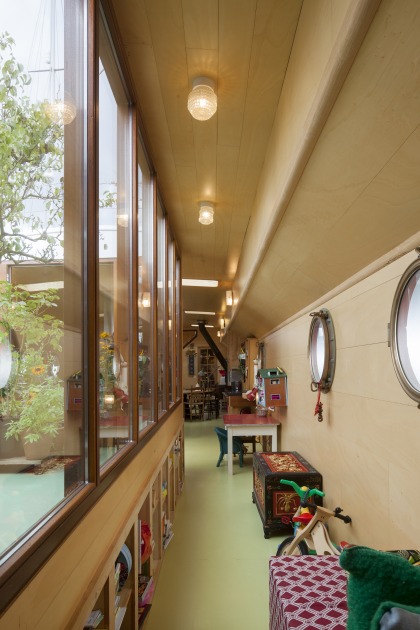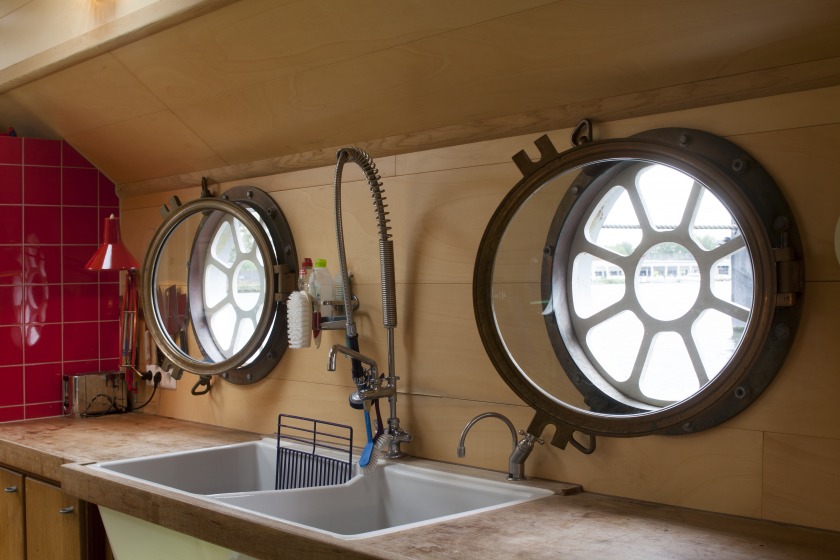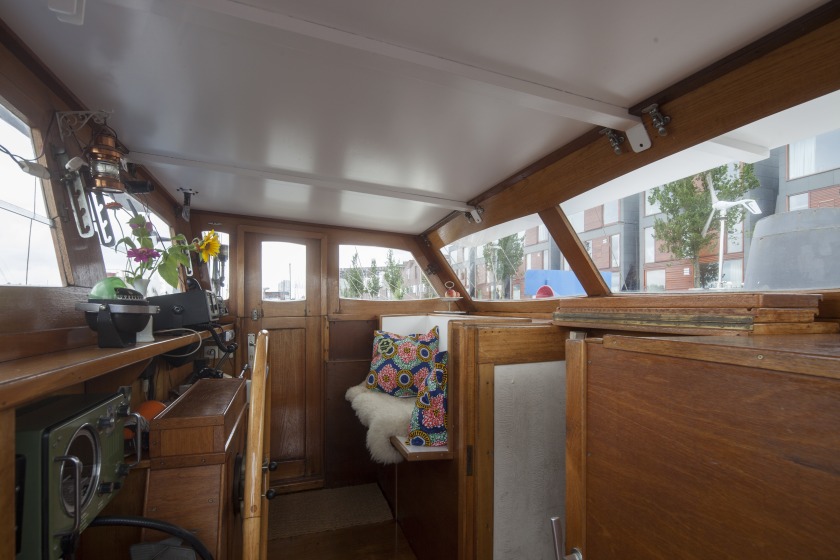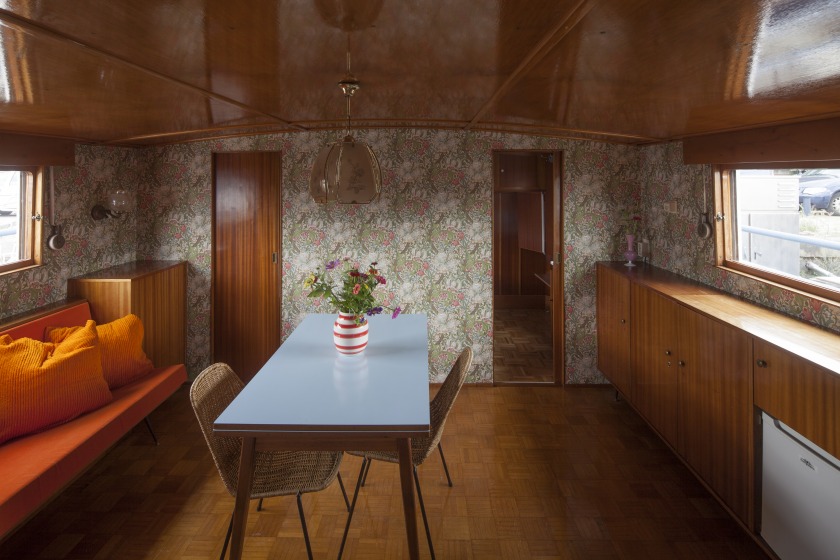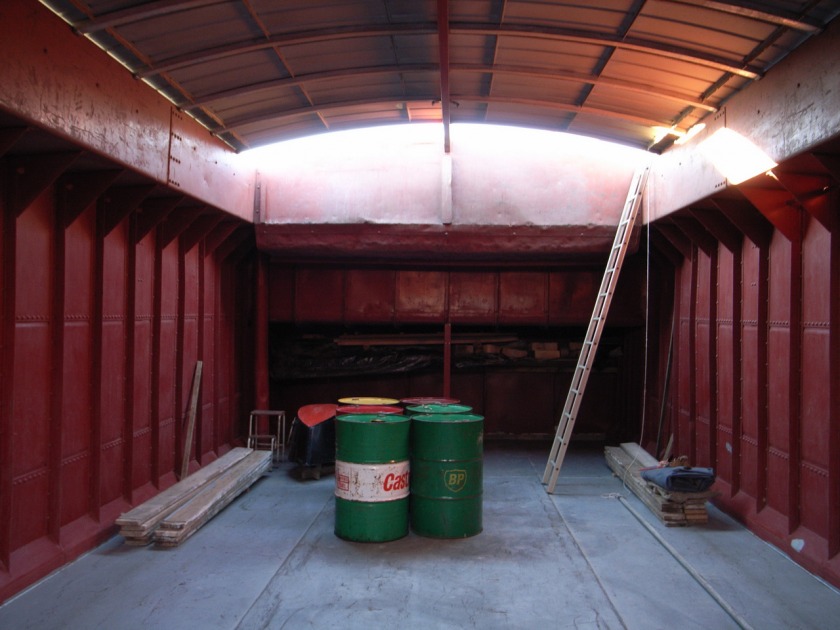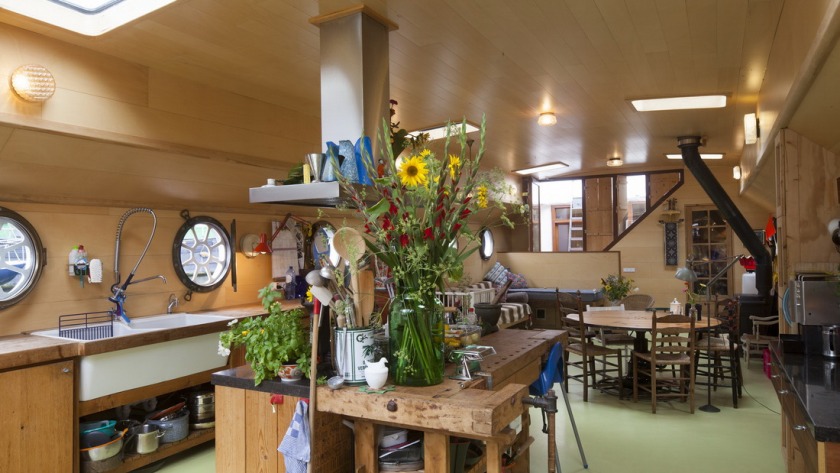Transformation of Belgian barge to Amsterdam houseboat
- Amsterdam
- John and Laura
Artist Laura and restaurant owner John needed a bigger houseboat because of family expansion. Their eye fell on a 40 meters long Belgian Spitz Barge which had just retired from its long life of hauling freight over the European rivers. They were so impressed by the love and dedication the captain had given the ship during its active years that they decided not to demolish or refurbish the steering hut, the deckhouse and the machine room. They wanted the ship to remain navigable so no alternation could be made to the engine, steering installation and all other aspects concerning the safety and certification of the ship.
When we took on the assignment, our primary aim was to make a light and airy houseboat. Most houseboats made in the cargo hold of a ship tend to be dark and sometimes gloomy. To avoid this gloominess we introduced a large patio and 18 oversized bronze portholes. Although a substantial investment we had to use these watertight Pakistan cast portholes in order to keep the vessel navigable.
The entrance to the house is via a smaller patio just in front of the steering hut. Besides the certified portholes we made no incisions in the hull of the ship.
The steel interior of the cargo hold was then insulated with 10 centimeters of foam and covered with light colored plywood. The floor is a cast cement floor on top of the isolations and piping.
For the patio itself the main ingredients are an outdoor bathtub and a pear tree. The safety of younger kids is of course an issue on a ship and a patio is an ideal way of giving kids outdoor playroom without the risk of falling overboard. The pear tree is not a common element on a ship but in terms of weight and size it is an easy task for a vessel used to carry hundreds of tons sand, cement or stones.
The kitchen and interior of the ship were made in close collaboration with the owners of the ship and reflect the artwork of Laura and the restaurant experience of John. Central piece of the ship is the cooking island which is always covered with fresh vegetables, herbs from their own patio and one or two pans on the stove.
The kids sleep in the front of the ship where the shipmate had his small hut, with the woodwork and the berth this kids room breaths the atmosphere of an old ship. Further on along the corridor are the bathroom and the parent’s room. The room of the parents is connected to the patio and has a skylight. Again this room does not remind you of the small bed bunks and the juggling with space you see normally in ships and houseboats but in fact the room looks more like a light garden room.
Because the cargo hold measures 5 x 30 meters and is 3.2 m high it was possible to fit the program of a very spacious apartment or even a suburban row house, something quite unique for the Amsterdam city center
The deckhouse and steering hut were restored and somewhat modernized and are now rented out as an independent mini apartment.
When we took on the assignment, our primary aim was to make a light and airy houseboat. Most houseboats made in the cargo hold of a ship tend to be dark and sometimes gloomy. To avoid this gloominess we introduced a large patio and 18 oversized bronze portholes. Although a substantial investment we had to use these watertight Pakistan cast portholes in order to keep the vessel navigable.
The entrance to the house is via a smaller patio just in front of the steering hut. Besides the certified portholes we made no incisions in the hull of the ship.
The steel interior of the cargo hold was then insulated with 10 centimeters of foam and covered with light colored plywood. The floor is a cast cement floor on top of the isolations and piping.
For the patio itself the main ingredients are an outdoor bathtub and a pear tree. The safety of younger kids is of course an issue on a ship and a patio is an ideal way of giving kids outdoor playroom without the risk of falling overboard. The pear tree is not a common element on a ship but in terms of weight and size it is an easy task for a vessel used to carry hundreds of tons sand, cement or stones.
The kitchen and interior of the ship were made in close collaboration with the owners of the ship and reflect the artwork of Laura and the restaurant experience of John. Central piece of the ship is the cooking island which is always covered with fresh vegetables, herbs from their own patio and one or two pans on the stove.
The kids sleep in the front of the ship where the shipmate had his small hut, with the woodwork and the berth this kids room breaths the atmosphere of an old ship. Further on along the corridor are the bathroom and the parent’s room. The room of the parents is connected to the patio and has a skylight. Again this room does not remind you of the small bed bunks and the juggling with space you see normally in ships and houseboats but in fact the room looks more like a light garden room.
Because the cargo hold measures 5 x 30 meters and is 3.2 m high it was possible to fit the program of a very spacious apartment or even a suburban row house, something quite unique for the Amsterdam city center
The deckhouse and steering hut were restored and somewhat modernized and are now rented out as an independent mini apartment.

